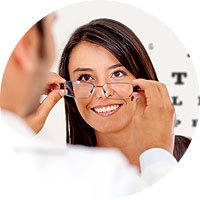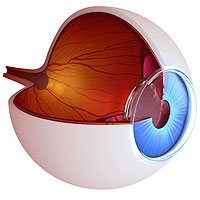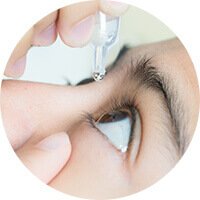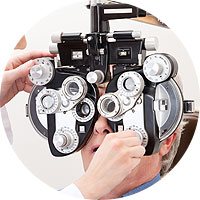
Cataracts are a very common eye condition typically associated with aging. Although cataracts can cause significant visual decline if left untreated, cataract surgery can restore your vision and allow you to see clearly once again.
Through regular eye exams, your eye doctor will be able to monitor your cataracts and determine when is the best time for surgery. Keep reading to learn how often you should have your eyes checked for cataracts!
What Are Cataracts?
Cataracts are an eye condition that affects the lens of the eye. The lens is a clear, transparent structure located behind the iris, which is the colored part of your eye.
Its role is to help focus light onto the retina, which is responsible for transmitting visual signals to the brain. In a healthy eye, the lens is clear, allowing light to pass through easily.
However, with cataracts, the lens becomes cloudy or opaque. This cloudiness interferes with the passage of light, leading to blurry or distorted vision.
Cataracts are primarily associated with aging and are commonly found in older individuals. They tend to develop gradually over time, causing your vision to become blurrier.
While aging is the most common cause of cataracts, other factors such as genetics, trauma to the eye, certain medical conditions, and lifestyle choices can also contribute to their development. To address cataracts and restore clear vision, the most common treatment is the surgical removal of the cloudy lens.
During cataract surgery, your cataract surgeon will replace your natural lens with an artificial intraocular lens, also known as an IOL, during the procedure. Cataract surgery is a safe and effective solution that can help restore your vision.
If you suspect you have cataracts or have concerns about your vision, it’s best to schedule an appointment with your eye doctor for an accurate diagnosis and appropriate guidance.
When Do I Need to Be Tested For Cataracts?
You should consider getting tested for cataracts if you experience symptoms such as blurry vision, difficulty seeing in low light, increased sensitivity to glare, or a noticeable decline in visual clarity. Additionally, if you are over the age of sixty, it is recommended to have regular eye exams to monitor for cataract development.
If you have risk factors like a family history of cataracts, a history of eye injury, or certain medical conditions, you may also benefit from early testing. Consulting with your eye doctor at Eye Care Specialists in Kingston, Pennsylvania, is the best way to determine if you need to be tested for cataracts.
How Do I Know When It’s Time for Cataract Surgery?
The decision for cataract surgery is typically made based on the impact of cataracts on your daily life and vision. Here are some indicators that it may be time for cataract surgery:
Visual Impairment
If your cataracts significantly affect your ability to perform everyday tasks, such as reading, driving, or recognizing faces, and if these difficulties persist despite the use of corrective lenses, it may be an indication for surgery.
Quality of Life
If cataracts interfere with your overall quality of life, causing frustration, limitations, or a decline in independence, it may be a suitable time to consider surgery.
Visual Acuity
A significant decline in visual acuity, measured through an eye examination, may suggest that cataract surgery could be beneficial.
Visual Symptoms
If you experience symptoms such as double vision, glare, halos around lights, or increased sensitivity to bright lights, and these symptoms disrupt your daily activities, it may be an appropriate time for surgery.
Ultimately, the decision for cataract surgery is individual and should be made in consultation with your eye doctor. They will assess your specific circumstances, conduct a thorough examination, and provide guidance on whether cataract surgery is recommended to improve your vision and quality of life.
Are you experiencing symptoms of cataracts? Schedule a cataract evaluation at Eye Care Specialists in Wilkes-Barre, PA, today!

















